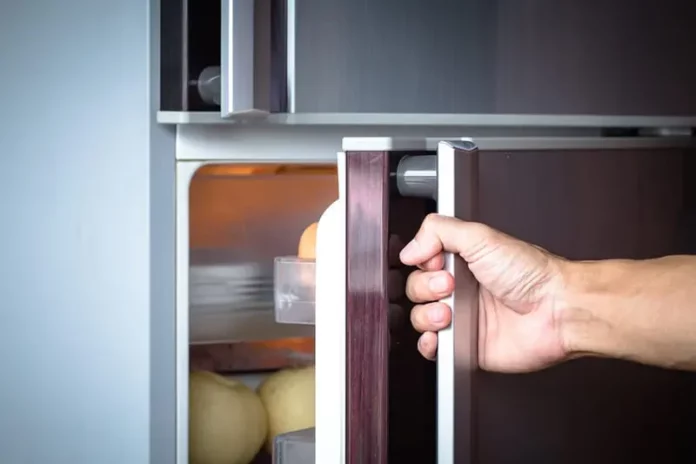Refrigerators are the unsung heroes of our kitchens, tirelessly preserving our perishables and keeping our drinks refreshingly cold. However, like all appliances, they can encounter issues from time to time. The good news is that many common refrigerator problems can be addressed without the need for a costly service call. In this guide, we’ll explore some typical refrigerator problems and provide step-by-step solutions to help you repair your fridge.
Professional Help in Refrigerator Repairment
Before starting to fix your kitchen appliance, you should also ask yourself:”Is it necessary to do everything by myself?” Sometimes, professional help in refrigerator repair is crucial due to the complexity of the appliance: a professional technician knows how to diagnose and fix a wide array of problems effectively without causing further damage. In case you are in need of fridge repair in Toronto, it would be a really good idea to request a technician’s help.
1. Refrigerator Not Cooling Properly
A refrigerator that’s not cooling effectively is a common issue and can lead to food spoilage. Several factors could cause this problem, including:
- Dirty Condenser Coils: Over time, dust and debris can accumulate on the condenser coils, reducing their efficiency.
- Faulty Evaporator Fan: The evaporator fan is responsible for circulating cool air throughout the refrigerator. If it’s not working correctly, the fridge won’t cool evenly.
- Damaged Door Seals: If the door seals are worn or damaged, warm air can seep into the refrigerator, making it work harder to maintain the desired temperature.
Solution:
- Clean the Condenser Coils: Unplug the refrigerator and locate the condenser coils (typically at the back or underneath the unit). Use a brush or vacuum cleaner to remove the dust and debris.
- Check the Evaporator Fan: Open the freezer compartment and listen for the sound of the evaporator fan. If it’s not running, it may need to be replaced.
- Inspect the Door Seals: Examine the door seals for any cracks, tears, or signs of wear. If you find any issues, replace the seals.
2. Water Leaking Inside the Refrigerator
Discovering water pooling in your refrigerator can be both frustrating and puzzling. This issue is often related to the following:
- Clogged or Frozen Defrost Drain: If the defrost drain becomes clogged or frozen, it can lead to water buildup and subsequent leaking.
- Faulty Water Inlet Valve: The water inlet valve, responsible for supplying water to the ice maker and water dispenser, may develop leaks.
Solution:
- Clear the Defrost Drain: Locate the defrost drain, usually found at the back of the freezer. Use hot water and a turkey baster or a pipe cleaner to clear any obstructions.
- Inspect the Water Inlet Valve: If you suspect the water inlet valve is leaking, turn off the water supply to the refrigerator and replace the valve.
3. Excessive Frost or Ice Buildup in the Freezer
Excess frost or ice in the freezer can affect the overall efficiency of your refrigerator and may indicate a few underlying issues:
- Defective Defrost Timer or Thermostat: If the defrost timer or thermostat malfunctions, it can result in excessive ice buildup.
- Worn Gasket or Door Seal: A damaged gasket or door seal can allow warm, humid air to enter the freezer, leading to frost accumulation.
Solution:
- Check the Defrost Timer and Thermostat: Refer to your refrigerator’s manual to locate the defrost timer and thermostat. If they’re faulty, replace them.
- Inspect the Gasket and Door Seal: Examine the gasket and door seal for any damage or gaps. Replace them if necessary.
4. Unusual Noises
Refrigerators can make various sounds during normal operation, but if you notice unusual noises like banging, humming, or rattling, it may be a sign of a problem:
- Compressor Issues: The compressor, responsible for cooling the refrigerator, can make unusual noises if it’s malfunctioning.
- Noisy Evaporator or Condenser Fan: If the evaporator or condenser fan is making excessive noise, it may be due to a malfunction or debris obstruction.
Solution:
- Check the Compressor: If the noise is coming from the compressor, it’s best to contact a professional technician for diagnosis and repair.
- Inspect the Fans: If the noise is from the fans, check for obstructions and clean them. If the problem persists, consider replacing the fan.
Conclusion
Let’s summarize all problems you may face during fixation of your fridge appliance:
Types of Problems with Your Refrigerator
| Refrigerator not cooling properly |
| Water Leaking Inside the Refrigerator |
| Excessive Frost or Ice Buildup in the Freezer |
| Unusual Noises |
By troubleshooting these common refrigerator problems and following the provided solutions, you can save time and money on unnecessary service calls. However, if you’re unsure about any repair or if the issue persists, it’s always a wise decision to consult a professional refrigerator technician to ensure the longevity and efficiency of your appliance.
Making that you will ensure that your refrigerator will be in reliable hands.

















